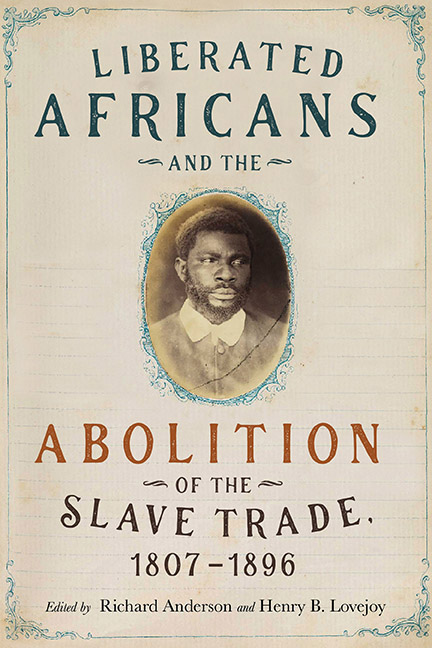Book contents
- Frontmatter
- Dedication
- Contents
- List of Illustrations
- Acknowledgments
- Introduction: “Liberated Africans” and Early International Courts of Humanitarian Effort
- Part One Origins of Liberated Africans
- Part Two Sierra Leone
- Part Three Caribbean
- Part Four Lusophone Atlantic
- Part Five Liberated Africans in Global Perspective
- Part Six Resettlements
- Bibliography
- Notes on Contributors
- Index
18 - “Promoting the Industry of Liberated Africans” in British Honduras, 1824–41
Published online by Cambridge University Press: 21 March 2020
- Frontmatter
- Dedication
- Contents
- List of Illustrations
- Acknowledgments
- Introduction: “Liberated Africans” and Early International Courts of Humanitarian Effort
- Part One Origins of Liberated Africans
- Part Two Sierra Leone
- Part Three Caribbean
- Part Four Lusophone Atlantic
- Part Five Liberated Africans in Global Perspective
- Part Six Resettlements
- Bibliography
- Notes on Contributors
- Index
Summary
The British Honduran economy in the eighteenth- and nineteenth-century British Atlantic world was based upon non-plantation-based mahogany harvesting utilizing small, mobile slave labor gangs. With the abolition of the transatlantic slave trade in 1807, the importation of slaves, mainly from Jamaica, ended. As the Slave Emancipation Act of 1833 took effect, the Baymen, the mahogany producers, looked to the liberated Africans in Cuba augmenting the mahogany labor gangs. Following a cholera epidemic in Cuba and a shift in international policy to resettle liberated Africans from Havana to British Caribbean colonies, 484 liberated Africans were sent to British Honduras between 1836 and 1841. Upon their arrival at Belize City, these individuals entered into apprenticeships to produce mahogany. In this chapter I describe the changes in the transition from slavery to apprenticeships and explore the use of liberated Africans in mahogany production within British Honduras in the mid-nineteenth century. In this initial examination of transfers, manumissions, contracts, ship voyages, and registers from Cuban and Belizean archives, the documents portray the journey of liberated Africans from Africa to Havana, and then to British Honduras. Although the use of liberated Africans in the mahogany industry was short lived, their history served as a continuation of the non-plantation-based economy in British Honduras after the abolition of slavery in the British Atlantic world and their continued marginalization throughout the mid-nineteenth century.
Mahogany's exclusivity, in its exotic appeal and costs associated with its acquisition and craftsmanship, made the wood a desired household item, but mahogany was also subjected to the changing luxury tastes of the consumer. By the mid-eighteenth century, the deforestation of mahogany in Bermuda, Cuba, and Jamaica led the British to look to British Honduras in the 1760s as the empire's supplier of the luxury wood. Mahogany trees do not grow in one-species forests but grow in clumps with a greater density in the north than the south; therefore, a small mobile slave labor force was required for harvesting. These harvesting gangs, averaging from ten to fifty slaves, ranged widely throughout the western and northern areas of British Honduras, traversing the disputed border with Spanish areas.
- Type
- Chapter
- Information
- Publisher: Boydell & BrewerPrint publication year: 2020



